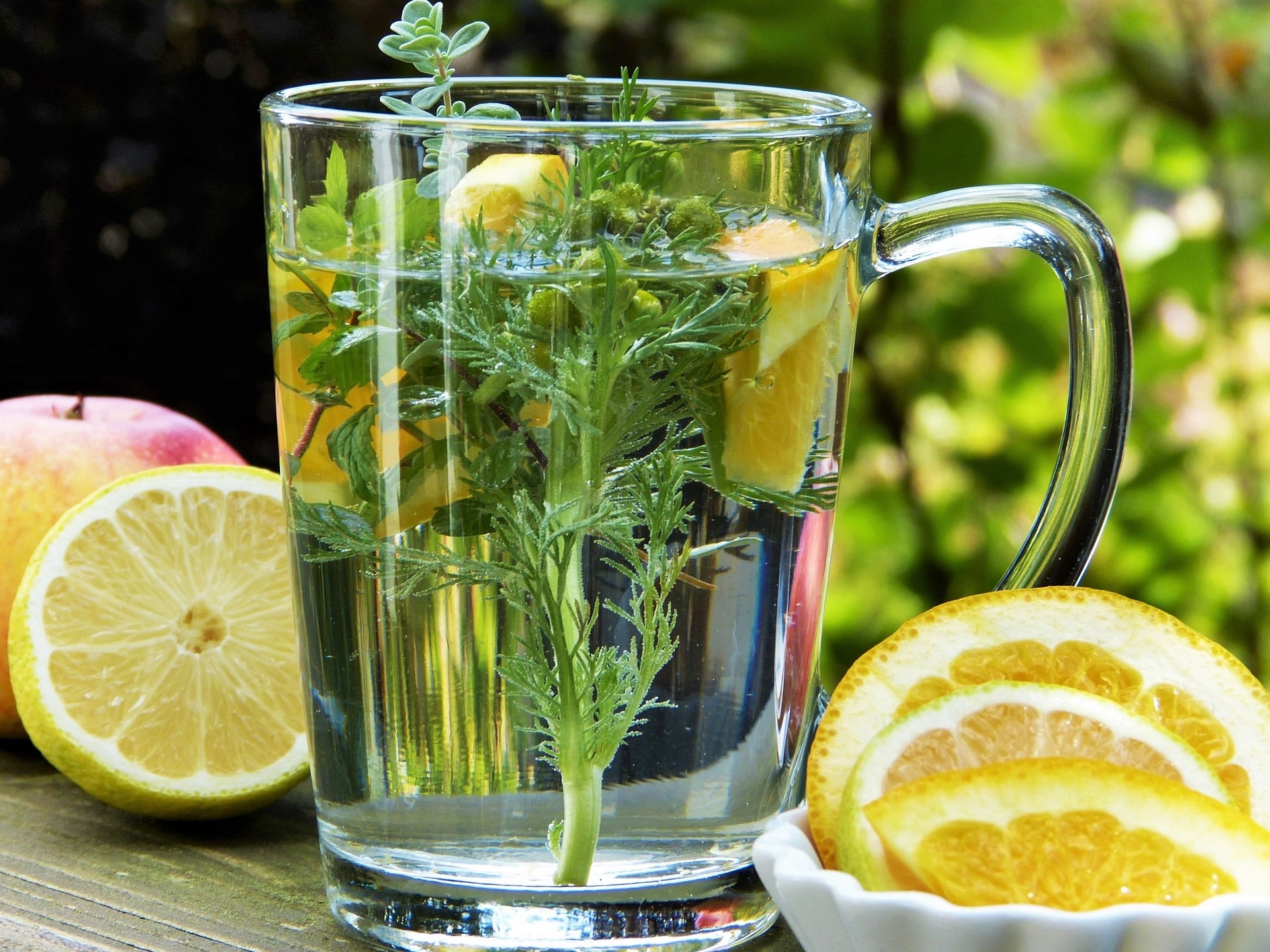Feeling a headache coming on isn’t the best way to start your day. Many people have to deal with this annoying pain at some point, whether it’s due to stress or just one of those days. Painkillers might be a great short-term remedy, but what if you could have something more natural and reliable? Do you know that there are herbs good for headaches?
Herbs are an excellent option for treating headaches because they work as powerful remedies from nature’s repertoire! They can be used in teas, aromatherapy, tinctures, and capsules to soothe the ache without resorting to medication.
Furthermore, herbs are known to reduce inflammation and calm frazzled nerves. With their high concentrations of antioxidants and neurologically active compounds, these herbs offer a natural approach to headache relief that is both safe and effective for most people.
This article will explore some herbs good for headaches and how they might relieve your next bout of head-splitting agony!
Herbs Good For Headaches: Understanding The Different Types

Simply put, a headache is a pain or discomfort anywhere in your head or neck. It’s a common complaint that can happen due to a variety of reasons, such as tension, dehydration, sleep deprivation, sinusitis, and even caffeine withdrawal. One thing’s for sure, a headache can be a real bummer, and it gets in the way of your daily activities.
There are different types of headaches that you might encounter, and knowing the type of headache you have can help in determining the best treatment for relief. Here are the most common types of headaches:
- Tension headache: This is the most common type of headache that causes dull pain on either or both sides of your head. This type of headache is caused by stress, poor posture, or eye strain.
- Migraine headache: A migraine headache is a severe and debilitating headache that causes pulsating pain, usually on one side of your head. It’s often accompanied by nausea, vomiting, and sensitivity to light and sound.
- Cluster headache: This type of headache affects one side of the head and recurs in a pattern or cluster. It’s often described as sharp and excruciating pain that comes and goes quickly.
- Sinus headache: If you have a sinus infection or allergies, you might experience a sinus headache. This headache usually causes pain and pressure around your eyes, cheeks, and forehead.
- Rebound headache: This type of headache occurs when you’re overusing pain medication. It’s common for those who frequently take over-the-counter pain relievers like ibuprofen or acetaminophen.
10 Herbs Good For Headaches
Natural remedies can be an effective option for treating headaches. Herbs are known to reduce inflammation, ease muscle tension, and improve circulation. Here are ten herbs good for headaches:
① Fennel

Fennel is a wonder spice for natural headache relief. Unlike most headache remedies which are chemical-based, fennel is an age-old remedy backed by science and personal testimony alike. Fennel has been proven to help reduce headache pain, and its benefits extend beyond headache relief.
Fennel contains anethol, which works to reduce inflammation in the body and provides naturally occurring pain relief – without any of the adverse side effects you commonly find with chemical treatments. It also comes loaded with antioxidants that can help slow down damage to brain cells caused by aging or environmental triggers.
To use it for headache relief, try stepping crushed fennel seeds in hot water for 10 minutes and drinking that solution twice daily. If you find the taste off-putting, consider making fennel herbal tea by adding a teaspoon of dried fennel to hot water. This will help make it more palatable.
Alternatively, add some essential fennel oil to your favorite carrier oil, such as coconut oil, and massage it onto your temples when needed for immediate headache relief.
② Rosemary

Rosemary is widely known for its culinary uses, but few know it is actually quite effective at helping reduce migraine pain. Rosemary has several properties that can relieve migraine, including antioxidants and pain-relieving agents like camphor. It’s also believed to help open up clogged blood vessels and help promote circulation in the brain as well.
To get the migraine relief benefits of rosemary, one of the most effective ways to use it is with massage oil—first mix 10 drops of rosemary essential oil with 4 teaspoons (20 ml) of carrier oil like coconut or almond oil and then massage it onto your temples and around your neck for migraine relief.
Additionally, drinking an infusion of rosemary may also be helpful— add 1 teaspoon (5 ml) of dried rosemary leaves per 8 ounces (240 ml) of water and steep for 10 minutes before straining out the herbs.
③ Lavender
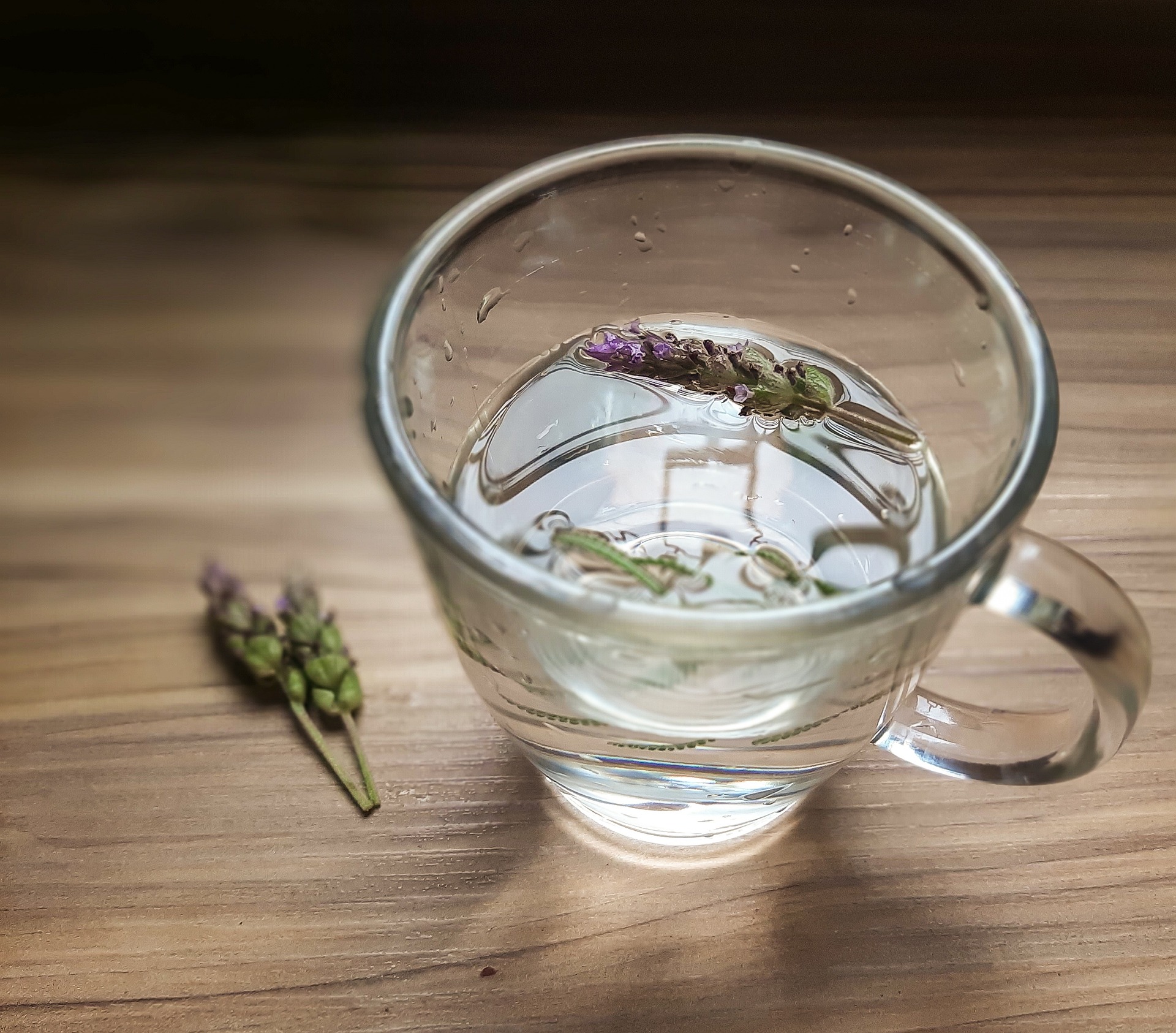
Lavender has long been used as an herbal remedy to treat various ailments, including headaches. It’s becoming one of the more popular herbal remedies, and research has revealed numerous benefits in treating headaches.
For starters, lavender can reduce the severity and frequency of migraine episodes, which many people suffer from regularly. Additionally, lavender acts as an anti-inflammatory and can reduce tension headaches experienced by many individuals leading busy lives and juggling multiple responsibilities.
The best way to leverage these benefits is to purchase the essential lavender oil extracted from the stem or flowers of the lavender plant and mix it with a carrier oil like almond or coconut oil before applying it to your forehead or temples for pain relief. Additionally, you can use a blend of water and lavender oil in an aromatherapy diffuser if available.
④ Mint
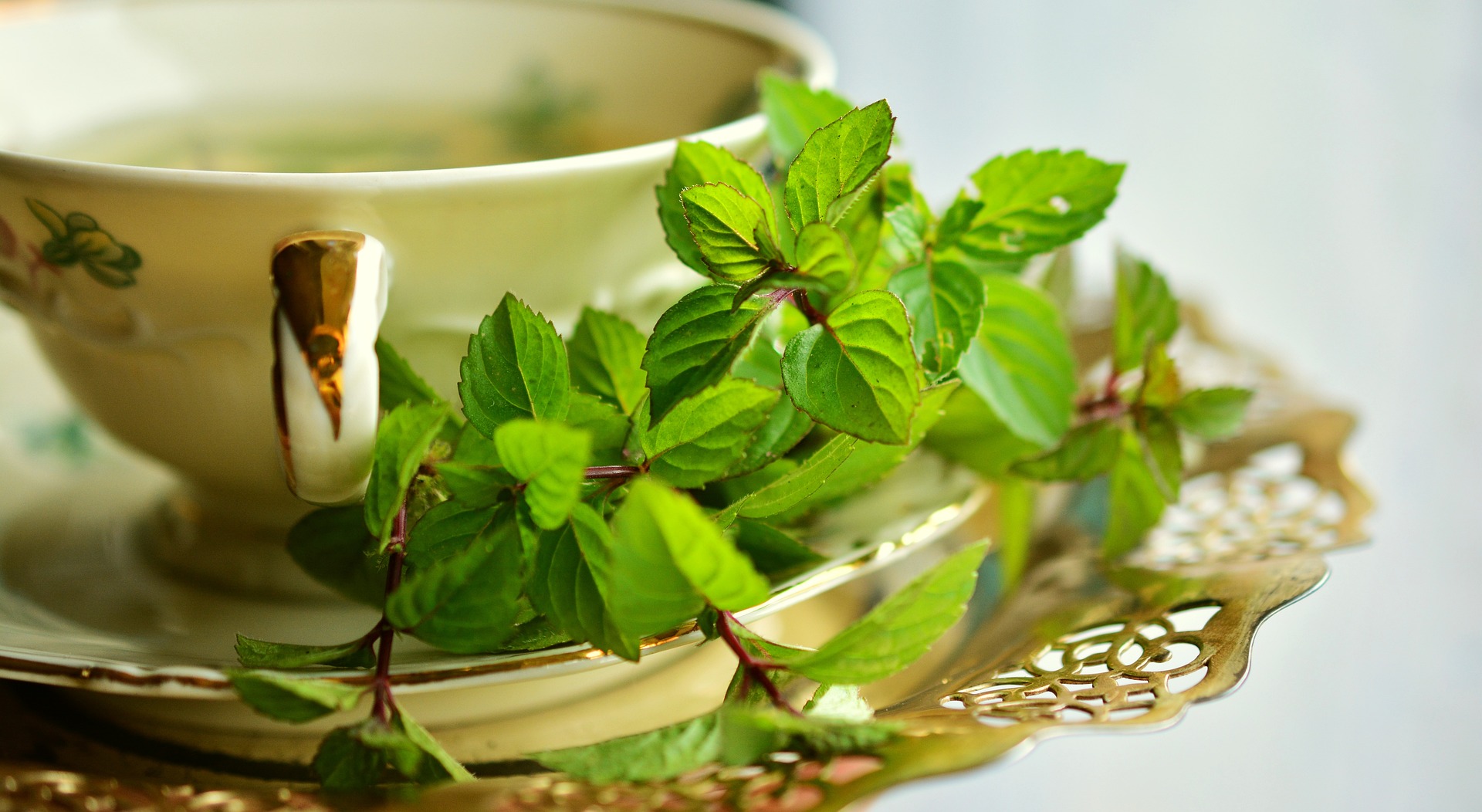
Do frequent headaches bring your day to a screeching halt? You might need some relief! As it turns out, mint can be a wonderful natural remedy for occasional headaches and may even improve chronic conditions.
Mint has a soothing and calming effect that provides relief from tension headaches. It also helps numb the pain of migraines and cluster headaches. To use mint to alleviate frequent headaches, take five to ten drops of pure peppermint oil in an ounce of carrier oil like olive or coconut oil. Massage the mixture into your temples or forehead for fifteen minutes a day. Inhaling mint vapors is another useful technique; put a few drops of pure essential oils into a diffuser or onto a cotton ball, and inhale its scent regularly throughout the day.
⑤ Chamomile
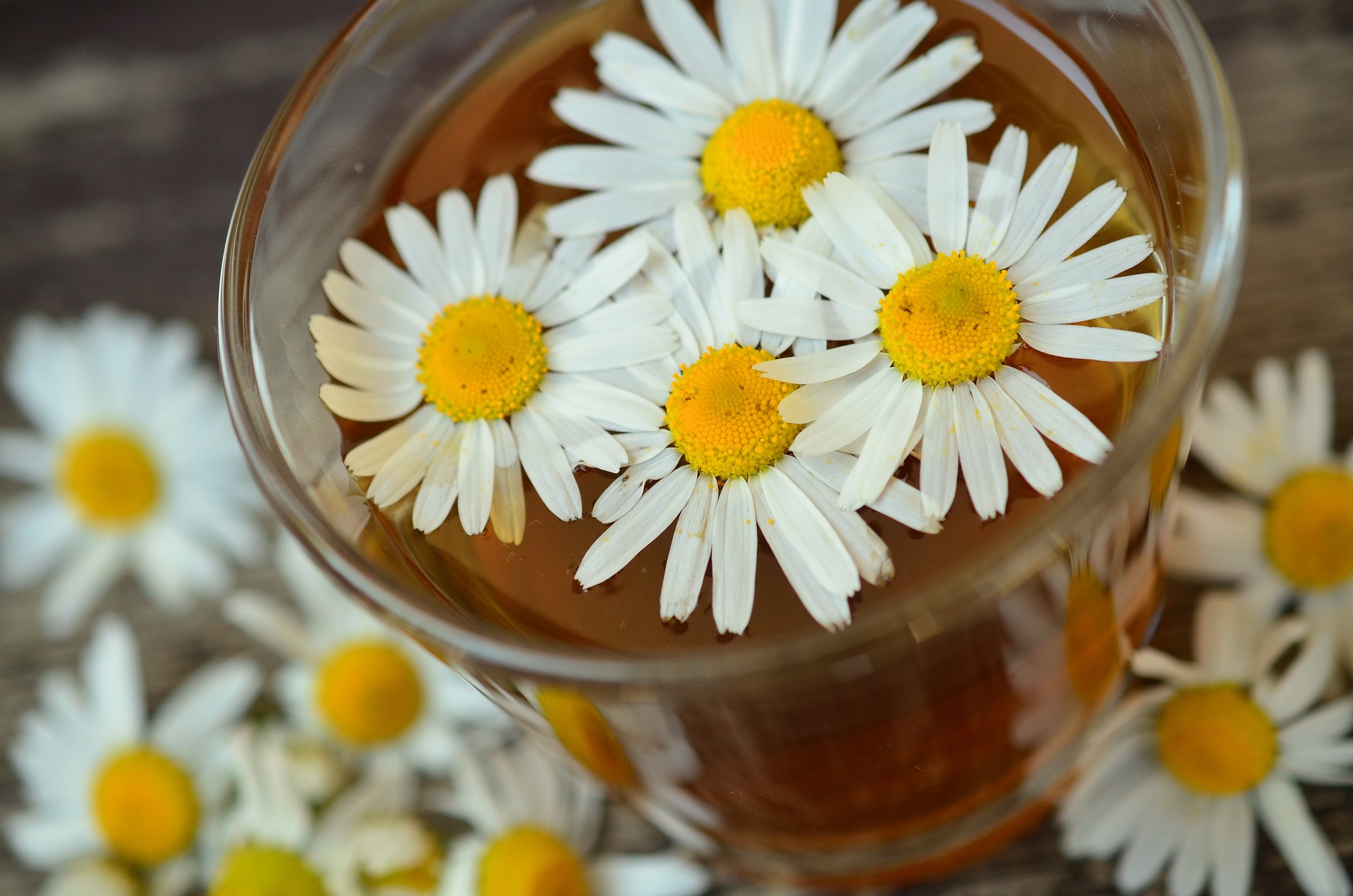
Chamomile has long been used as a traditional Chinese medicine for chronic and stress headaches. Research suggests that by calming the body’s nervous system, chamomile can help reduce headache-inducing tension. In addition to its calming effects, it is also thought to act as an anti-inflammatory, providing relief to those suffering from headaches caused by inflammation.
To get the most benefit from this natural remedy, make chamomile tea part of your regular routine. It can be enjoyed as a hot or iced tea and may be prepared with honey or lemon for added flavor. It will help ease chronic and stress-induced headache symptoms. Plus, it provides a nice moment of relaxation before bedtime or any time during the day.
⑥ Catnip

If you’re suffering from chronic migraines or persistent headaches, catnip may be the perfect remedy to provide some relief. Belonging to the mint family and related to oregano and basil, catnip has a compound called nepetalactone that acts as an anti-inflammatory and painkiller, improving circulation and relaxing the nervous system.
The plant itself can be dried and brewed for tea or inhaled as steam, with both forms providing significant pain relief. Plus, it’s natural! In order to make the tea, simply steep one teaspoon of catnip in seven ounces of hot water for five minutes.
Strain if necessary and enjoy between 1-3 cups per day. You should start feeling some relief soon after drinking. If preferred, boiling a few fresh leaves in hot water with peppermint can make a refreshing tea inhalation that alleviates stress-related symptoms.
⑦ Basil
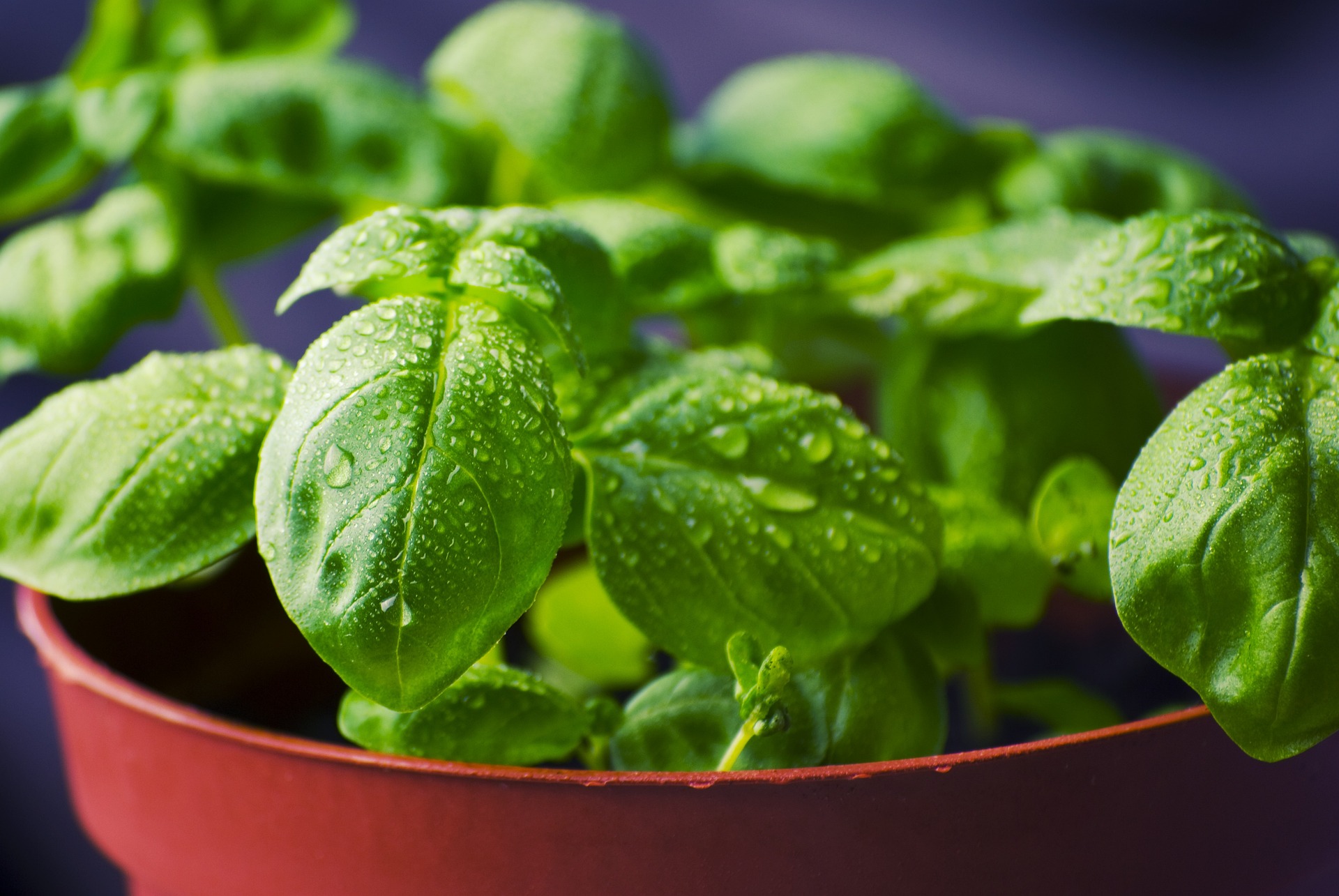
When migraine sufferers around the world search for relief, basil is often overlooked as a potential remedy. But many migraine patients report that this fragrant herb can provide welcome aid from these debilitating headaches. While more research is needed to determine why basil works for migraine management, there’s little doubt that it has some powerful anti-inflammatory effects – and those migraine attack dulling qualities may stem from those anti-inflammatory properties.
The best way to use basil to help treat migraine headaches is by ingesting it either through aromatherapy or tea. Simply steep 2 teaspoons of dried basil leaves in 8 ounces of hot water. Then, strain out the leaves after 10 minutes. Enjoy this herbal brew up to three times a day or as often as migraine pain dictates.
For migraine sufferers wanting an even quicker relief solution, inhaling the scent of freshly cut basil directly from its leaves can provide some instant calming effects and potentially help stop the migraine attack in its tracks.
⑧ Lemon Balm

Lemon balm has been used to reduce chronic migraine headaches for centuries. It’s a versatile herb that can reduce the intensity and frequency of chronic headaches, making it an attractive natural choice for those looking for relief. Lemon balm works by inhibiting the neurotransmitters responsible for pain signals in our body, which can provide some effective and long-term relief from chronic migraine pain.
And the good news is there are many ways to use Lemon Balm to get your chronic migraines under control. It can be taken as a tea or topical application via balms, essential oils, tinctures, and aromatherapy and has been known to help reduce chronic headache symptoms. Alternatively, if you want a simple solution, you can smell the herb immediately! The key is finding what works best for you regarding dosage and regimentation that fits your lifestyle.
⑨ Ginger
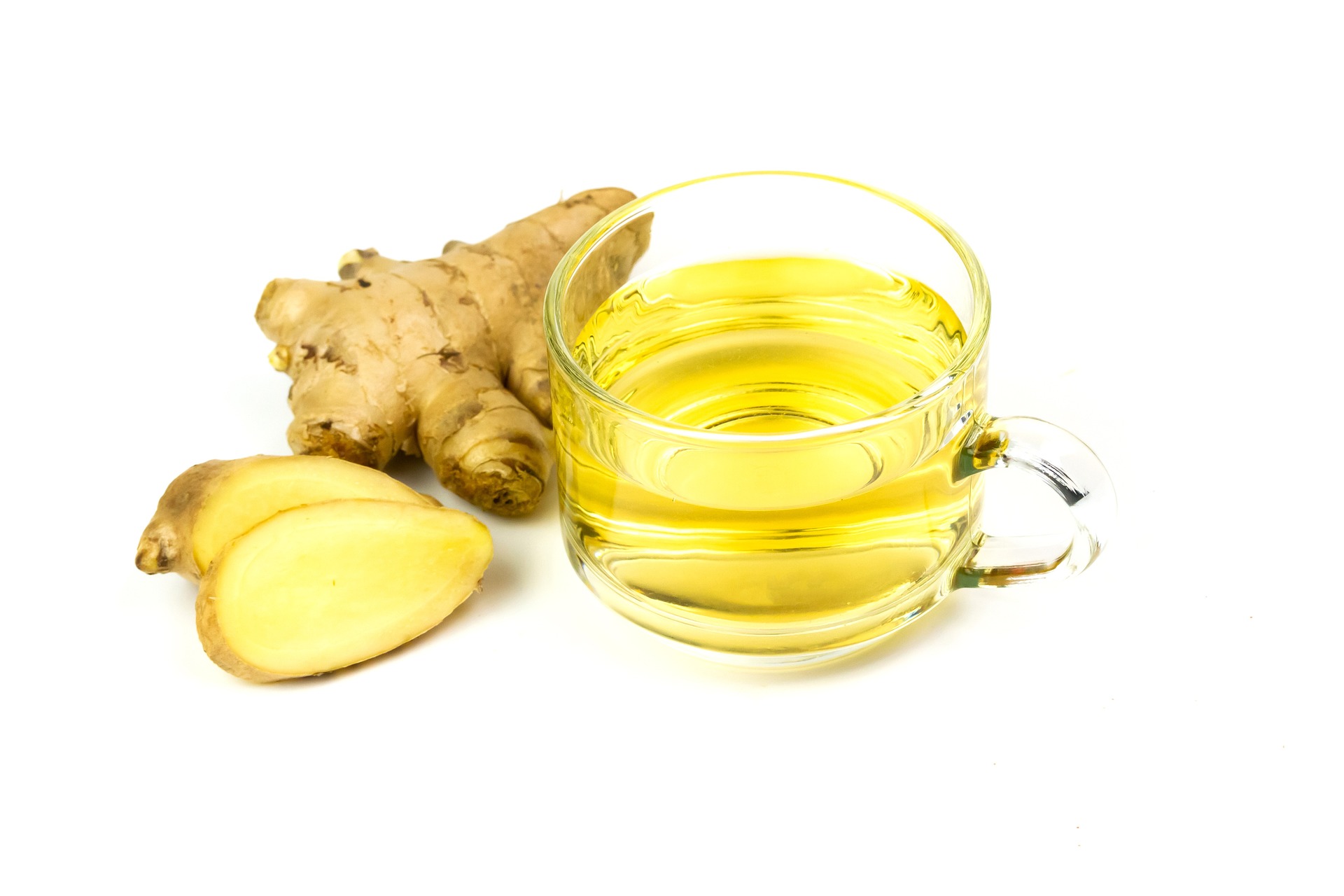
This fantastic root has long been used as a remedy for many ailments, including headaches. Making ginger tea is one of the simplest and most effective ways to harness ginger’s properties. All you need to do is peel a piece of ginger roughly the size of your thumb. Then, cut it into slices, add it to boiling water. Let it steep for about 10 minutes before enjoying it. You can also add some honey or lemon juice for added flavor if you would like. The tea should give you relief from tension headaches within minutes. Plus, ginger tea has numerous other health benefits, such as soothing sore throats and aiding in digestion.
⑩ Skullcap
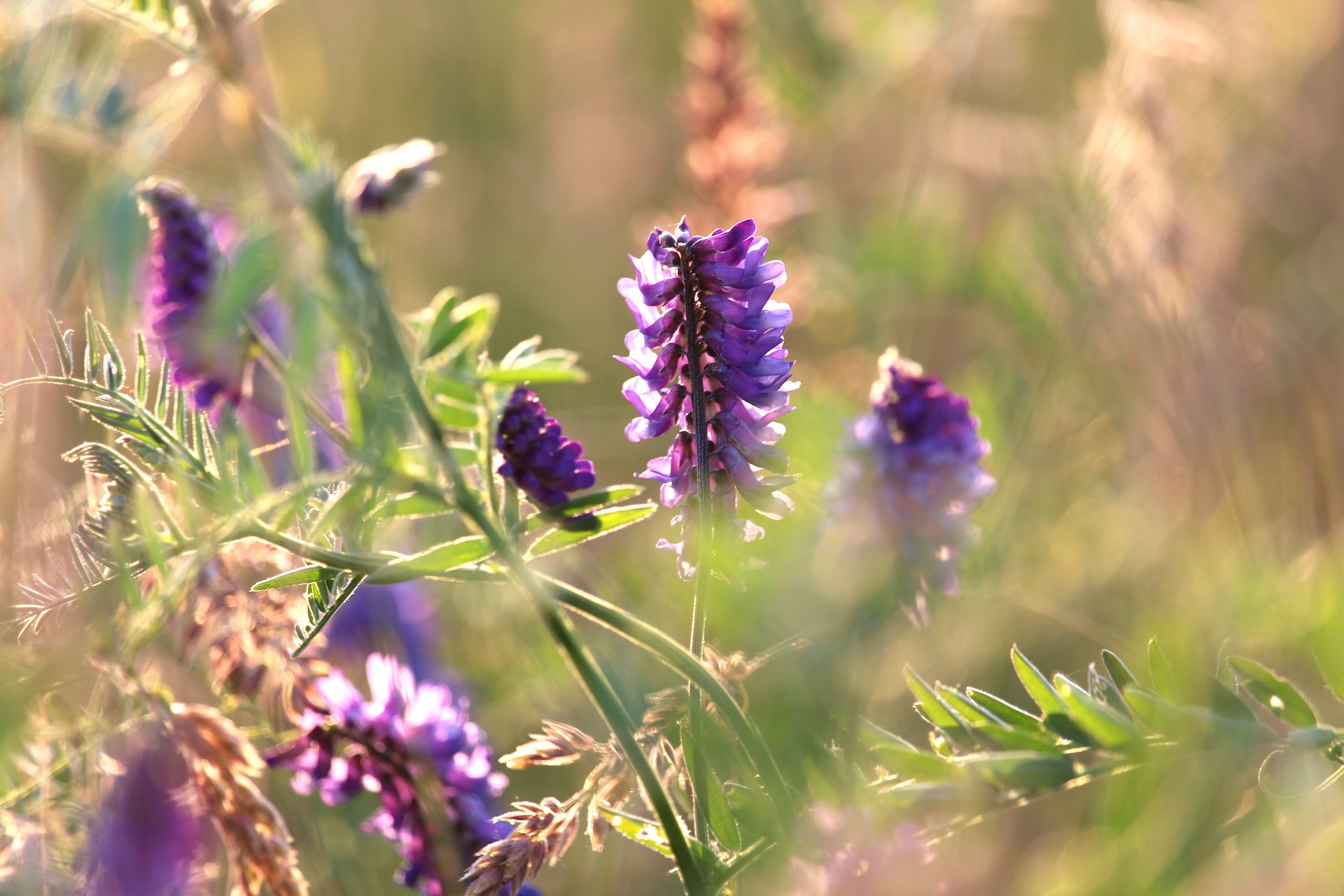
Skullcap is an incredibly powerful herbal remedy for headaches. Used across traditions and cultures for centuries, this remarkable herb is known to reduce inflammation, alleviate discomfort associated with headaches, and even target the underlying causes of pain. No matter your headache type, a skullcap can be a valuable aid in managing your symptoms.
To use it most effectively, brew a cup of tea using 1 teaspoon of dried skullcap leaves per cup of hot water. Steep it for 5-10 minutes and then strain and drink. The effects are often felt almost immediately! Alternatively, you may find skullcap tinctures at health food stores.
Follow the instructions on the packaging to determine dosages based on your weight and age but generally start with 2-4mL 2-3 times daily. It’s best to work closely with an experienced herbal practitioner to ensure you get the best outcome when consuming skullcap herbs.
Other Natural Remedies To Reduce Headaches And Migraines
The remedies mentioned above are just a few of the many natural ways to reduce headaches and migraines. Here are some other options to consider:
🚰 Drink Lots Of Water
Drinking water can be an effective remedy for those suffering from headaches and migraine, as dehydration can cause or exacerbate head pain. In general, most people should drink around two liters of water per day. However, headache and migraine sufferers should try to increase this to reduce how often they experience head pain. This doesn’t necessarily mean you have to guzzle every glass of H20 –even small changes make a difference.
Try sipping on glass throughout the day. You don’t have to chug it while standing at the sink! Additionally, foods like cucumbers and melons are full of water, so they can help too. And if you don’t like plain water?
Well, try adding fresh fruit or using an infused herbal tea. Remember those primary school lessons about making healthy choices? Well, let’s live them out! Hydration is key when trying to reduce headaches and migraines, so get some fluids in any way that works for your lifestyle.
🧊 Cold Compress
Now, it may seem counterintuitive to put something cold on your head when it already hurts, but the cold helps numb the area and constrict the blood vessels surrounding it, thus providing pain relief. When applying a cold compress, you should make sure the pressure is light enough not to agitate the area any further. Think more gentle silencing of pain than pushing against it.
Also, don’t keep the cold press on too long, as this could result in a rebound effect and worsen the headache. Try doing 20 minutes of cooling at a time and give yourself breaks in between applications if necessary.
💊 Take Some Magnesium
Taking magnesium may be the perfect way to reduce or even eliminate those painful headaches and migraines without having to run to the medicine cabinet. Whether you choose magnesium pills or some other form, such as a drink mix, adding this mineral to your diet can increase your body’s ability to cope with pain.
Magnesium works by relaxing capillaries and muscles in different areas of the body, which can help reduce headaches caused by tense muscles, as well as migraines brought on by too much constriction around blood vessels. Drinking plenty of fluids when taking magnesium can also help you stay hydrated and balance electrolytes—two more key components for proper headache relief.
🛌 Get Adequate Sleep
Getting adequate sleep is one of the most popular natural remedies to reduce headaches and migraines. This is because your body uses a good night’s sleep to repair and rejuvenate itself, including a balance of hormones and brain chemicals that need to be to keep head pain at bay.
When our bodies don’t have enough rest, we can end up feeling fatigued, more emotionally vulnerable, and more susceptible to headaches and migraines. Stable sleep habits are key. It’s important to go to bed simultaneously each night and get up in the mornings consistently. Therefore, our circadian rhythms can stay regulated.
Establishing a calming bedtime routine might also benefit – such as having a hot bath or shower before bed. It’s also recommended to avoid screens for at least an hour before sleeping, as bright light from laptops near bedtime can disrupt your sleep cycle. Lastly, try ensuring your bedroom atmosphere is optimal for restful sleep. Make sure it’s dark, cool, and comfortable so you can drift off easily each night.
🪡 Try Acupuncture
The ancient practice comes from Traditional Chinese Medicine and has been used for centuries to relieve various ailments. During an acupuncture session, thin needles are strategically placed on the body to stimulate certain areas known to relieve certain maladies.
The great thing about it is that it’s much more than just stabbing yourself with needles. An acupuncturist is trained to place the needles in special points that can maximize the pain-relieving effects while simultaneously suppressing inflammation and improving circulation throughout your body. It’s allergy-friendly, too! Some people might experience slight pains during insertion, but other reactions are rare.
👍 Relax With Yoga
Relaxing with yoga is one of the oldest and most effective natural healing therapies available for headaches and migraines. Yoga’s combination of physical exercise and calming, deep breathing techniques have been scientifically proven to reduce feelings of stress and tension—key factors in triggering these types of pain.
Additionally, practicing regular yoga stretches can restore proper blood flow throughout the body while also strengthening key muscles around your neck, shoulders, and head, which can help prevent future discomfort. Plus, participating in a calming yoga practice can also provide a much-needed mental reset allowing you to find balance in your often stressful lives.
In short, enriching your life with some relaxing yoga may very well be one of the best natural remedies available for relieving headaches and migraine pain!
Frequently Asked Questions
Q: What did the American Headache Society recommend for natural headache relief?
To start with, they suggest exercising regularly and getting enough sleep, as these help your body stay generally healthy and reduce the risk of developing headaches. Additionally, they recommend relaxation techniques such as meditation, deep breathing, and muscle relaxation exercises. Finally, diet plays a role when it comes to preventing headaches: limit foods like caffeine and processed junk food- make sure to keep your plate full of fruits, vegetables, lean proteins, and whole grains.
Q: What Chinese herb is known to help headaches and migraines?
One traditional remedy is Gastrodia Elata, more commonly known as Tian Ma. It’s been used for centuries to help with headaches and migraines. Plus, some say it also helps with dizziness and concussion-type symptoms. The best way to use Tian Ma is to steep it in hot water, like making tea. Although the taste might take some getting used to! This natural remedy can be a great alternative or supplement to over-the-counter pain medications. And while there are no guarantees, many people have reported relief after trying Chinese herbs like Tian Ma.
Q: Is green tea good for headaches?
It turns out this ancient beverage may offer some relief. Scientific studies have shown that green tea can soothe inflammation associated with headaches and migraines. Some experts believe it contains agents powerful enough to relieve tension headaches. Now you can enjoy sipping a calming cup of green tea without feeling guilty about indulging in a little self-care.
Q: What tips can I follow to improve my sleep quality and reduce headache frequency?
One of the best tips to keep in mind is to try and maintain a consistent schedule when it comes to your bedtime. This can help tell your body that it’s time for bed and create a routine that it will eventually get used to. Additionally, limit or eliminate blue light from screens two hours before bed, including phones, tablets, or laptops. Finally, give yourself downtime before turning out the lights. Whether it’s a bath, reading, or listening to some relaxing music – take some time before sleeping.
Q: Are there spices for instant headache relief?
If you’re looking for a fast and easy way to relieve your headache on demand, you might consider investigating some spices. Popular spices like turmeric and cinnamon have long been used as home remedies for various ailments, including headaches. Each spice has its own unique properties that make it beneficial in treating headaches. Turmeric has natural pain-relieving compounds, and cinnamon can help to improve circulation and promote healing. Plus, adding these spices to food or making tea with them is an easy and enjoyable way of delivering medicines straight to the source of your pain!
Final Words
Herbs are a great way to naturally fight off headaches. From basil to chamomile and skullcap, these herbs can often do the trick at reducing headache severity or even getting rid of the headache altogether. It always helps to talk to your doctor first before using any herbal remedies. Make sure that you are using them properly, as taking too much of certain herbs can have many unwanted side effects. So get informed on what herbs may be best for your headache situation, and start feeling better soon!

